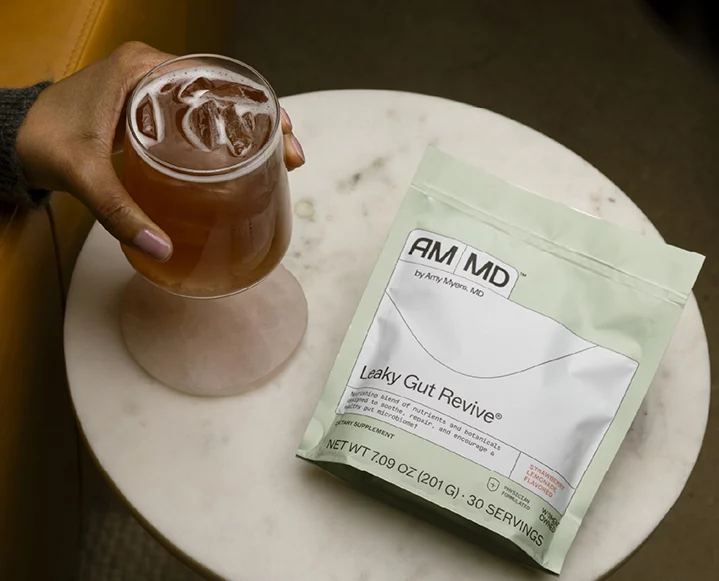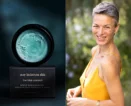James Oseland is the author of the Lonely Planet food anthology, A Fork In the Road, with 34 contributors including Michael Pollan, Carla Hall, and Marcus Samuelsson. He’s spent the better part of the last decade as the editor-in-chief at Saveur, and has exercised his discerning palette as a judge on Top Chef Masters since 2009. Quite the foodie resume! So we were excited to learn of James’ recently announced entrance into the wellness world this spring as the editor of Rodale Inc.’s brand new Organic Life magazine.
Rodale Inc. is something of a “natural living”empire, equipping people to live a healthier, cleaner life since it’s inception in the 1930’s. Rodale has published books by several of our own Guest Editors, from Jessica Alba to Alicia Silverstone, and runs gold-standard health magazines from Prevention to Women’s Health. The Rodale Institute is the incredible 300-acre non-profit organic research farm run by the organization and where James has volunteered for some time.
Rodale’s Organic Life has just released it’s first issue (May/June) and will be dedicated to helping readers consume responsibly and to providing actionable, inspired ideas for gardening and well-being. We asked James what is inspiring him most as he enters the wellness world the year. Here are six issues at the top of his mind…
IT’S ALL ABOUT WATER
Another thing that I’m excited to talk about these days is one of the most basic elements of life on earth: water. It’s absolutely essential, yet the fundamental human right to a clean, accessible water supply is increasingly under threat. Questions of how to best conserve water in a time of climate change; approaches to protecting our marine and fresh-water resources and the diversity of life that depends upon them; issues of ownership, access, and management of the world’s water; even the ways in which water is essential to our individual happiness and wellbeing – all of us on staff at Rodale’s Organic Life are more than a little bit obsessed with these topics. Look for more, including plenty of good news, in an upcoming issue of the magazine.
THE JOY OF TECH
Sure, most of us have become slaves to our smartphones and computers, and in a larger way, completely unconsciously beholden to the world of technology. As a result, we’re often preoccupied with the idea of reducing tech in our lives. We need to address technology’s more harmful effects on ourselves and on the Earth, but I’m here to say, too, that the benefits of technology are manifold. Your smartphone is the Library of Alexandria, a concert venue, a world map, a weather station, and so much more all at once, all right at your fingertips. Here’s to all of that incredible knowledge, which, interestingly enough, can help us live more organically and more in tune with the rhythms of nature – if we use it mindfully.
MINDFUL LIVING
In our busy lives, mindfulness can be an extraordinary tool. And with Rodale’s Organic Life, we want to remind people how amazing it is to take some moments out of your day and slow down, wholly immersing yourself in an experience: admire the shape and color of a new spring leaf, drink in the smell of pavement after rain, relish the sensation of warm sudsy water as you tackle a sink of dirty dishes. When you’re truly mindful, small experiences become extraordinary, and daily life takes on a whole new dimension.
NATURAL FOOD IS DELICIOUS FOOD
Asked what organic food is, a lot of people still default to kale salads, cold-pressed juices, granola. Not to knock those foods, but organic is so much more these days. “Organic” isn’t just about what’s healthy for us and for the planet. Yes, foods grown without chemical pesticides or fertilizers are more flavorful and characterful. You bite into an organic apple, and all that sweet, bright, juicy goodness blows conventionally grown fruit away. But to my mind, “organic” is also about delicious recipes that are global, diverse, and surprising, as well as made with pristine ingredients. It’s that California-style sandwich of avocado, jack cheese and sprouts that I bought from the local co-op as a kid, but it’s also an Italian-style bruschetta of crispy toasted whole-wheat topped with organic ricotta salata and with eggplant that you pulled from your own garden and roasted yourself.
ORGANIC IS MORE THAN FOOD
The expansion of the availability of organic foods to North American consumers in the past decade or so has been nothing short of extraordinary. But when we think of everything that we grow, there’s more than just food. For those of us who want to bring the beauty of nature into our homes, there’s a nascent but equally significant movement, for instance, in organic cut flowers. A stunning bouquet of riotously colorful dahlias or ranunculus brings so much joy, yet many flowers are grown with (literally) tons of pesticides, a dangerous condition for the environment and for farm workers. I’m excited by the work of small-scale growers, like Floret in Washington’s Skagit Valley and Los Angeles’ Silver Lake, both profiled in “Flower Power” in the May/June issue of Rodale’s Organic Life. These organic farmer-florists are doing amazing work, helping to heal the planet and bringing its abundant, pure beauty into our lives.
BACK TO NATURE
I’ve been a New York City apartment dweller for decades now, but thanks to the volunteer work that I’ve been doing on weekends at the Rodale Institute, a 300-acre nonprofit organic research farm, I’ve rediscovered the profound happiness of getting your hands in the dirt and tending to animals and plants. It’s part of a deeper connection to nature, an amazing thing that everyone should have the chance to experience. I’m happy to be back at Rodale where it’s readily accessible, and I look forward to spreading the joy through Rodale’s Organic Life!











